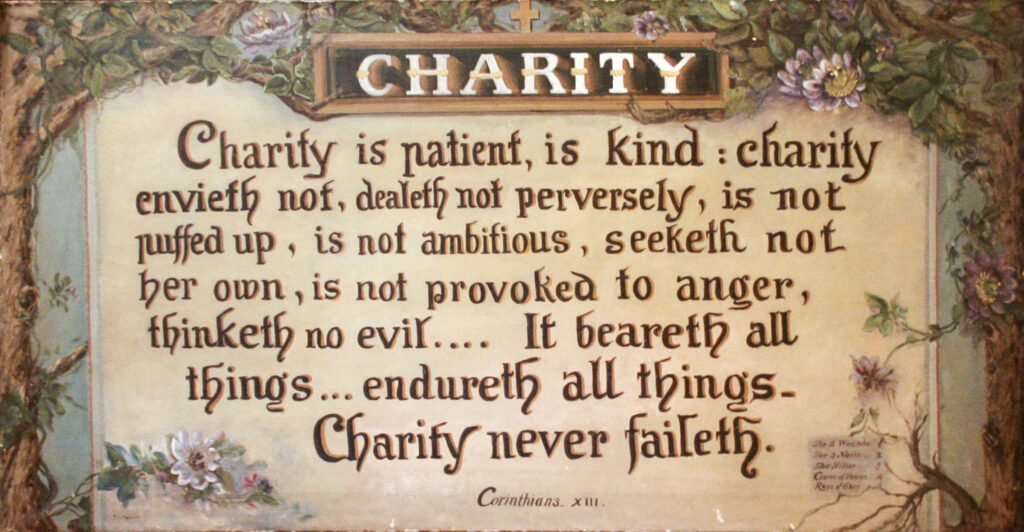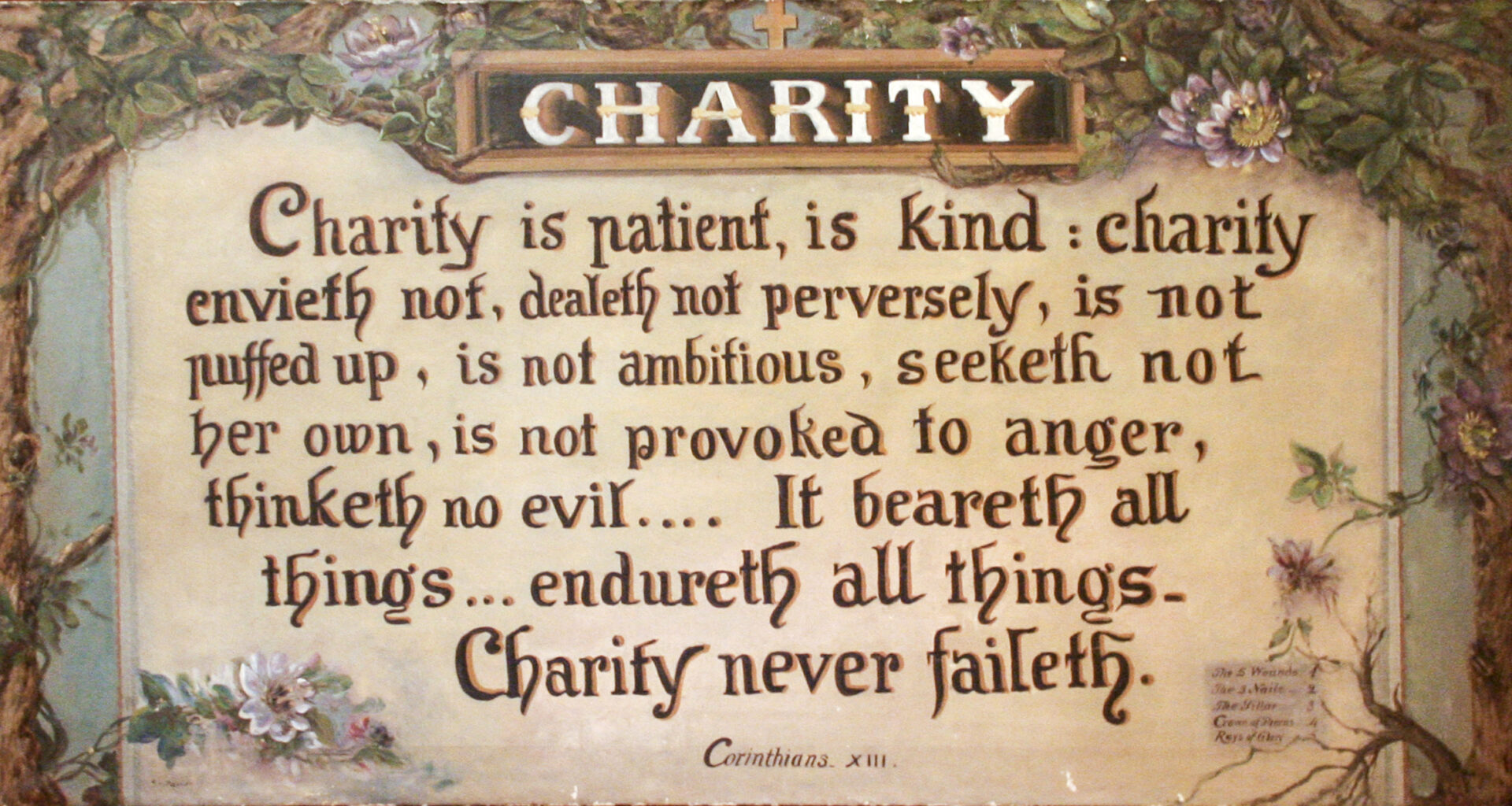
Misogyny, homophobia, child beatings and the Taliban are not causes that most people would associate with charity work. But these are all examples of things which I have seen registered charities promote quite openly on their websites.
The Holiness Revival Movement Worldwide Europe, which registered with the Charity Commission last year, ran essays on its website condemning women who wear trousers as ‘harlots’ and blaming women who dress ‘sexily’ for rape.
The Core Issues Trust, a registered charity in Northern Ireland, offers what it calls ‘change orientated therapies’ for people ‘who want to move away from homosexual feelings, behaviours and attractions’. If you think this sounds an awful lot like ‘gay conversion therapy’, that is because, judging from the definition on its website, that is what it is.
The official website of the Free Presbyterian Church of Scotland devotes a whole article to why parents should physically discipline their children, simply because the Bible says: ‘Withhold not correction from the child: for if thou beatest him with the rod, he shall not die.’ Yet smacking children is illegal in Scotland.
And last year, the Miftahul Jannah Academy, a registered charity in England, published a lecture on their website in which a preacher praised the ‘amazing victory of the Taliban in Afghanistan’, saying ‘Allah gave them victory on the battlefield.’
What links these charities is that they are all registered in the UK, quite lawfully as matters stand, under the charitable purpose of ‘the advancement of religion’. This is not a coincidence. These organisations have promoted extremist ideologies because those ideologies stem from their religious beliefs. And this is one reason why ‘the advancement of religion’ is perhaps the most controversial and archaic of the recognised charitable purposes under the law in England and Wales, and similar provisions in Northern Ireland and Scotland.
Being a registered charity means being exempt from most taxes in exchange for providing some kind of benefit. There are therefore a number of conditions that a non-profit organisation must fulfil to be recognised as a charity in law. One is that the charity must exist to serve a public benefit, without causing harm. Another is that it must exist for a recognised charitable purpose in law, sometimes called a ‘head’ of charity. These heads include things such as ‘the prevention or relief of poverty’ and ‘the advancement of health’. They also include ‘the advancement of religion’.
The advancement of religion as a head of charity originates from Tudor times, when trusts supporting the upkeep of churches, the maintenance of preachers and the provision of religious practices were considered charitable. However, in post-Reformation England, charity law functioned to support only the established church and approved religions; trusts for non-conformist religious purposes were identified as illegal ‘superstitious uses.’ Over the centuries, the definition of what counts as a religion in charity law has gradually widened.
Under the law as it stands today, in theory, existing for a charitable purpose such as ‘the advancement of religion’ is not sufficient for an organisation to be a charity – it must also demonstrate a ‘public benefit’. But in practice, evidence suggests that religious charities do not have to demonstrate any tangible public benefit at all – and often, they can promote harmful messages under the cloak of ‘advancing religion’.
The existence of the ‘advancement of religion’ charity head reveals an inherently pro-religion bias in charity law: why would it be considered a charitable purpose at all if religion was not thought to benefit the public in some way?
Furthermore, attempts to make this charitable purpose inclusive of non-religious worldviews such as humanism have failed. Despite other laws such as the Equality Act 2010 being inclusive of ‘religion or belief’, charity law stubbornly continues to recognise religion only.
Why are religions, but not non-religious worldviews, considered so beneficial that they deserve charitable status, with all the financial benefits this brings? Strangely, there seems to be no clear explanation for this anywhere in the law or in guidance issued by charity regulators.
The vague assumption that religion is inherently beneficial is at odds with what most British people think about religion: in a series of recent studies, 52% of British adults said they had no religion, 68% said religion was ‘not important’ to their own life, and over 60% of those under 65 thought religion does more harm than good.
But as a result of conceptions about religion and charity originating from the Tudor period, we are now in a situation where, every year, hundreds of charities register in the UK under ‘the advancement of religion’ provision without really having to demonstrate a public benefit.
Some of these charities are seemingly benign but of dubious benefit. A typical example is CV Europe, which registered earlier this year. Its website says it works in three areas: ‘Introducing people to Jesus’, ‘Mobilising Christians to evangelise’, and ‘Resourcing the Church with free digital content and knowledge’. It is hard to see what tangible public benefit this charity serves – except to Christian institutions looking to expand.
But then there are others, like the examples given earlier, which are potentially harmful. And unfortunately, in some cases there is little the charity regulators can do to rein them in.
When the National Secular Society raised concerns with the Northern Ireland Charity Commission regarding the Core Issues Trust, the Commission refused to intervene. It said the Core Issues Trust presents its ‘therapy’ as ‘beneficial’ and ‘contests the view that this practice is inherently harmful.’ In other words, the Commission was prepared to take the Core Issues Trust’s word over that of all reputable health and psychological organisations, since every one of them considers ‘conversion therapy’ to be ineffective, unethical and harmful.
Earlier this year, the NSS referred a Christian charity, East Kilbride Christadelphian Ecclesia, to Scotland’s charity regulator OSCR, after finding anti-vaccine conspiracy theories and viciously homophobic posts on the charity’s Facebook page. OSCR said there was nothing it could do, because it concluded the views expressed by the charity are ‘in accordance with their religious beliefs’.
Such cases provide clear evidence that ‘the advancement of religion’ as a charitable purpose not only provides cover for useless charities – it provides cover for downright harmful ones as well.
At this point, it is important to highlight that there are many religious charities that do genuinely good work for the public. There are many running food banks, helping the homeless, and providing essential aid overseas. But in every one of these cases, the beneficial work they are doing can be classified under a charitable purpose other than ‘the advancement of religion’. The Trussell Trust is one excellent example of a Christian charity whose work is classified under a number of different purposes, none of which are ‘the advancement of religion’.
Religious charities are a secularist issue. Giving tax breaks to organisations simply because they advance religion violates the principles of church-state separation and state neutrality on religion.
The simplest solution would be to remove ‘the advancement of religion’ from the list of recognised charitable purposes. This would not be a barrier to religious charities which do provide a genuine public benefit, because that benefit would be covered by one of the other charitable purposes. But it would go a long way to ensuring all charities, religious or not, are held to the same high standards when it comes to satisfying the public benefit requirement.
And more importantly, it would close the loophole which currently permits charities to advance intolerant, harmful, extremist ideologies under the cloak of religion.
See also:
How taxpayers subsidise evangelism, by Emma Park (New Humanist)
2019 report by the National Secular Society on ‘the advancement of religion’









Your email address will not be published. Comments are subject to our Community Guidelines. Required fields are marked *
Donate